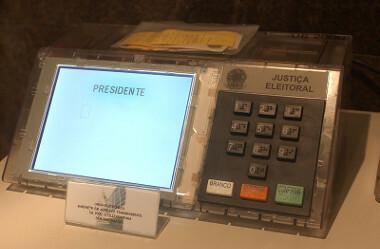O vote, or suffrage, as it is also known, is one of the main instruments used to elections of political representatives or to take political decisions, in spaces where there is popular consultation for this, as in cases of referendums or plebiscites.
At the Brazil, various political representatives of the population are elected through voting, such as councilors, mayors, state and federal deputies, in addition to governors and presidents of the Republic.
Since 1988 Constitution that the universal suffrage was instituted for the choice of the occupants of these above mentioned positions. Universal suffrage means that every citizen within the legal norms has the right to vote. This configuration of political participation was a victory in the sense of expanding the criteria of representative democracy in the country, since all citizens over the age of 16, male or female, literate or illiterate, have the right to choose their representative through voting.
However, in the history of voting in Brazil
, it was not always like this. The votes that existed during the colony and during the Brazilian Empire were restricted to men who held a certain level of income. With the advent of the Republic, the vote was extended to other men, but not to women. These could only participate in elections in Brazil from 1932, with the reform of the Electoral Code.The existence of dictatorial periods, such as between 1937 and 1945 and between 1964 and 1985, greatly reduced the scope of the political participation of citizens in the choice of their political representatives. The historical restriction on the participation of a large part of the population in the choice of their representatives through of the vote made the universal suffrage established in the Constitution of 1988 gain an enormous importance.
Through voting, it is possible for voters and citizens to choose from a range of options in advance. established a person who will represent him in some of the political institutions for a period determined. This choice, ideally, should be made with political awareness and after an analysis of the the candidate's proposals and their feasibility of application, in addition to the personal and political background of the candidate.

The electronic ballot box replaced paper ballots, ensuring greater speed in the counting of votes *
Do not stop now... There's more after the advertising ;)
Intense campaigns are carried out to combat the buying votes, a still common practice during elections in Brazil. Through the purchase of the vote, politicians with greater economic power are able to influence, in an unethical manner, a greater number of voters. Buying votes is a crime in Brazil, but that doesn't mean it doesn't exist.
On the other hand, several critical positions in relation to representative democracy point out that campaign financing, which is legal, also end up causing the classes that have greater economic power to put their representatives in power, limiting the scope of the democracy. In this case, only millionaire electoral campaigns would have the capacity to be victorious in the main elections.
Another feature of vote in Brazil is that it is mandatory. There are campaigns for voting to be optional, a choice made by people who want to elect their representatives. In favor of this position, there is the argument that such a measure would reduce cases of corruption in elections, in addition to expanding citizens' choice, as they could start by choosing whether they want to vote or do not.
There are also positions of deeper criticism of the elections, especially those arising from the campaigns of the null vote. The practice of annulling the vote is intended to expose a discontent with the entire system of representative democracy or, in some cases, dissatisfaction with the candidates that are presented.
In many cases, the criticism of representativeness indicates a limitation of this form of organization, which excludes most from direct political participation. of citizens, distancing them from this type of practice, which would be limited to voting only at certain periods, for candidates previously chosen by associations. In this sense, between elections, citizens would be kept away from political decisions, as they would delegate this function to their representatives.
The various positions in the debate demonstrate the importance of vote in Brazilian political practice.
* Image Credit: Antônio Cruz/Agência Brasil
Would you like to reference this text in a school or academic work? Look:
PINTO, Tales of the Saints. "Elections and the importance of voting"; Brazil School. Available in: https://brasilescola.uol.com.br/politica/importancia-voto.htm. Accessed on June 27, 2021.

